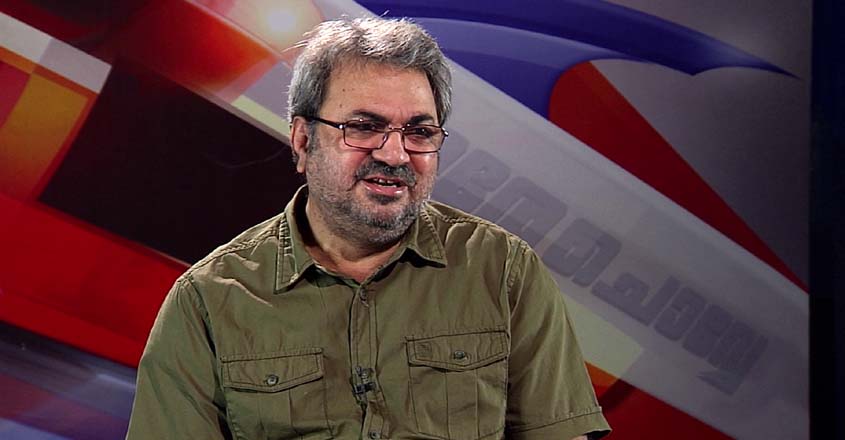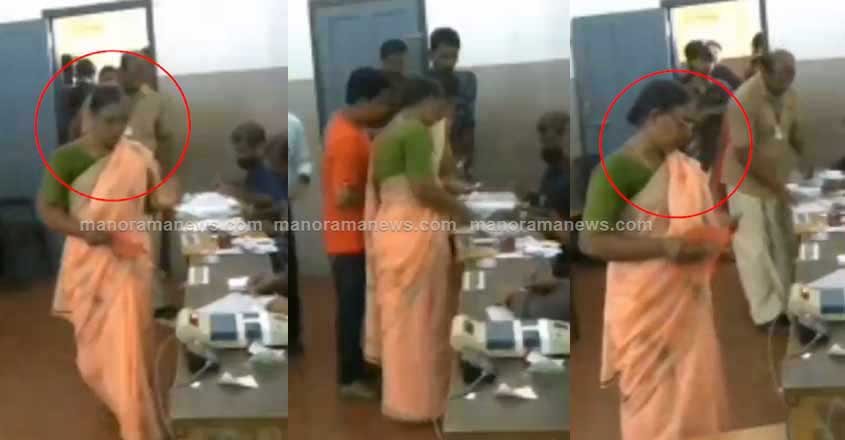Can Meena's Seshan-like spirit purge the evil of bogus voting

Mail This Article
It is for the first time in Kerala that criminal cases have been slapped on persons who had indulged in bogus voting, 17 till now. Chief electoral officer Teeka Ram Meena, who had all along exhibited a calm transformative zeal, is in no mood to stop short of a revolution. “I want to see the end of this bogus voting menace,” Meena told Onmanorama.
The CEO has spared no one, he has initiated action against workers of both ruling and opposition parties. To begin with, it was the CPM workers who were pulled up; three CPM women, a serving panchayat member and two former ones, casting bogus votes in a Kannur booth were the first visuals to be leaked. But the latest score shows that Muslim League workers outnumber their CPM counterparts.
This even-handedness has stumped even political parties. Initially, the CPM went on the offensive against the CEO. Later, chief minister Pinarayi Vijayan himself said he found nothing wrong in the CEO's actions. The CPM circles are a bit peeved that the chief minister had, in effect, congratulated the CEO.
Narrow-angle lens
But is Meena's Seshan-like firmness enough to clean the state elections of bogus votes? Sajad Ibrahim KM, the head of the Department of Politics at Kerala University, said no. “This is just the tip of the iceberg. The CEO has caught hold of just 20 bogus votes using the web cameras installed in polling booths,” Sajad Ibrahim said.
“But the practice is so rampant that the CEO and his team is just not in a position to control it. There are hundreds of polling booths in a constituency and to check the webcast visuals of even the booths in the most sensitive districts is nearly impossible. Don't expect an Election Commission that has refused to count even half the VVPATs to even attempt the task,” he said.

Teeka Ram Meena, too, conceded that the Commission would not examine the webcast visuals on its own. “We will examine the visuals only when a complaint is raised,” he said.
Third eye's shortcoming
Even assuming that all the webcast visuals are examined it would still not be even remotely enough. Web cameras are not universal, they have been installed in only 14.5 per cent of the polling booths in the state. Out of the 24970 polling stations in the state's 20 constituencies, webcams have been placed only in 3621 stations. Of this, 1841 were in Kannur alone. The remaining webcams were spread over other sensitive constituencies like Kasaragod, Wayanad and Kozhikode.
Now, how does the Election Commission hope to collect proof in constituencies like Idukki and Alappuzha from where complaints have come but where the polling booths had no webcams? Having webcams in all polling booths is outrageously utopian. Even the Election Commission norm is to have webcast facilities in 10 per cent booths in a state.
There's something to fear
Still, even while admitting that the system does not have the wingspan to hold the menace within its grasp and crush it, social commentator N M Pearson said that the CEO's action could instil in voters what he termed a “democratic conscience”. “This is a small but decisive step. Most of these people who had been enlisted by parties to do the bogus voting were doing it for the thrill of it. This was something daring that they were doing for their party for which they knew their party would both protect and reward them. And since there is no history of action taken for such an activity they might have even got the feeling that bogus voting was not a crime at all,” Pearson said.
The criminal charges slapped on 17 men would change this perception. “All of a sudden, they have found that their party leaders are not coming out in support of them. Strangely for them, they hear their leaders speaking out against bogus voting. It seems that parties are now not in a position to protect the guilty,” Pearson said.
Fall of political gods
When the charges were first raised, the CPM did not even admit it was bogus voting. The party took the stand that it was only “open voting”, in the sense that the impersonator was actually doing a favour for the original voter. When Meena said he had not heard of such a thing called “open voting”, the ruling party attempted to spread the guilt. This ploy worked. It produced evidence of bogus voting by Muslim League men, and it was also found true.
“Now, at least, no party claims that there is no bogus voting,” Meena said with a chuckle. Meena also feels that his actions have put fear in the minds of grassroots party workers. “They had the feeling that their gods would protect them. Now they have found out that their gods are too powerless,” Meena said.

Unofficial solidarity
Now that both the fronts have been caught with their pants down, there is a concern that there will be no more bogus voting charges. “Political parties, irrespective of their ideologies, hate election reforms. There is an unofficial consensus among them to sustain the status quo. Since all of them have blood on their hands, they will not want things to get vitiated further,” said social critique Appukuttan Vallikkunnu.
Without a complaint, as Meena himself said the Election Commission will not bother to check the webcam. Therefore, to carry on the fight against bogus voting, the burden of hope is on the individual. “But can an individual ever complain if his very existence is threatened by the parties against whom he dares to go against,” Vallikkunnu asked.
Teeka Ram Meena cannot answer for this but he said that individuals could complain and their privacy would be protected. “Of course, they will have to produce some prima facie evidence to prove their claim. And if their charges are proved false, I assure you that there will be no punitive action,” he said.
Biometric solution
Nonetheless, most people Onmanorama talked to spoke of “biometric authentication” as the best way to root out bogus voting. “Now that Aadhar is being made mandatory for a host of things, right from bank accounts to office attendance, why not for elections too. Instead of the voter's signature, which can be easily mimicked, why not her thumb impression,” Sajad Ibrahim asked.


